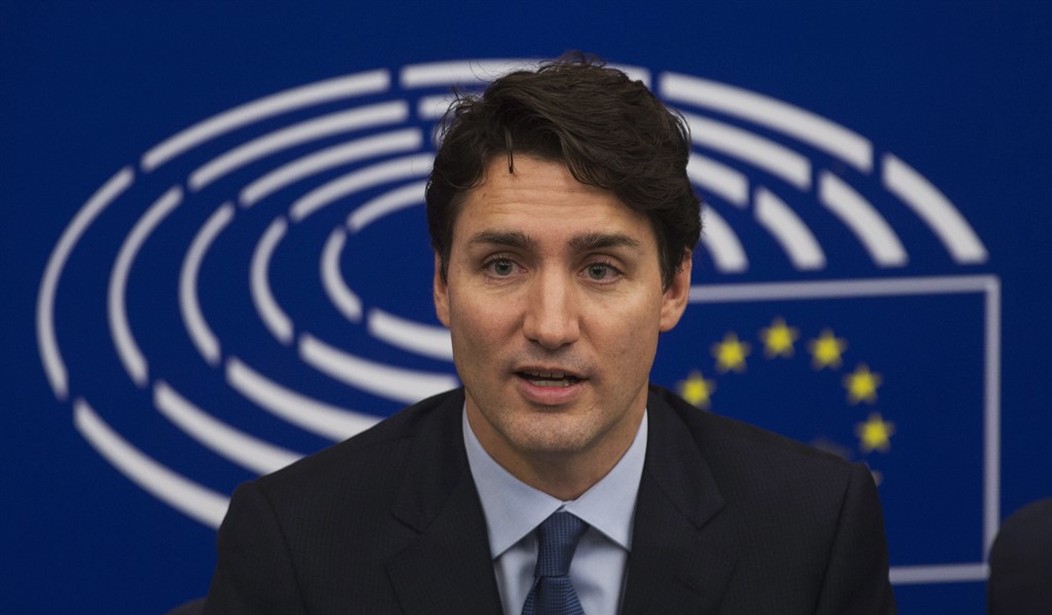PARIS -- Canada's quota-based immigration system was recently hailed by center-right French presidential candidate (and former Prime Minister) Francois Fillon as a shining example on the global stage.
"I propose an immigration quota policy like Canada does," Fillon said in a recent television appearance.
Hear that, Canadian Prime Minister Justin Trudeau? Canada became a model of responsible immigration and globalization thanks to your predecessor, Conservative Prime Minister Stephen Harper. Don't screw it up now.
Whoops, looks like it may already be too late, if a recent New York Times piece highlighting the plight of Syrian refugees in Canada is any indication.
Yes, Canada has a merit-based point system for so-called skilled workers, thanks to Harper, who apparently figured out that when the "skilled worker" occupation list includes gigs like "administrative assistant," you'd better have some other meritocratic selection criteria beyond just the ability to perform the job.
Fast-forwarding to the Trudeau era: What's the point of being ultra-selective about whom you let in the front door when there's a bouncer letting everyone sneak through the back door, undermining the meritocratic basis of the system?
The New York Times article published on Sunday took a magnifying glass to the situations of a few of the approximately 40,000 Syrian refugees welcomed to Canada since November 2015. Many of them are now facing the critical "Month 13" in their new country, as their private sponsors' obligation to support them financially for a year comes to an end.
We were told that Canada was screening refugees while they waited in refugee camps overseas, and that these new arrivals would make an important contribution to the Canadian economy. If that's the case, why are we learning that some couldn't even read or write Arabic, let alone English or French, and that some are so uneducated that they're still struggling to communicate after a year of taking language classes?
Recommended
In the Times story, one refugee heard others in an English-language class talking about ways to game the Canadian welfare system. "One explained that he could work and still collect the government assistance, if he could persuade his boss to pay him under the table," according to the Times piece.
That refugee, who may have been withdrawing money so that his bank balance would meet the threshold for social assistance, according to the story, was making $11.50 an hour in a restaurant job before getting a raise that bumped his hourly wage up to $13. A great many Canadians have managed to survive on the same sort of wages without resorting to scamming the system.
Meanwhile, the same refugee's father, who remained in Syria, was pressuring his son to send money, even if he had to get it from his Canadian sponsors.
I guess we're supposed to find it heartwarming that the kids profiled in the Times piece are starting to read aloud in English, lighting up their proud parents' faces; learning how to play hockey; and filling a void in the lives of their private sponsors (retirees, in this case), who attend to their every whim in a strange co-dependent dynamic. For all this, the article suggests that the cost to Canadian taxpayers is really just an investment in future generations whose children will integrate better than their parents.
But Canadians never used to get stuck with the bill for that like they do now. Does it really make us jerks to expect newcomers to support themselves? (I'm a native of Canada.) We've all heard the immigration stories from our parents' and grandparents' generations, who came to North America and worked grueling jobs to provide their kids with a better life. They knew that the adjustment would be hard for them. They were industrious and self-reliant. Unlike the Syrian family profiled in the Times story, they didn't consider going back to their homeland just because their private-sponsorship gravy train was arriving at its final stop. They didn't have that choice. That the Syrian family even considered that option over a bit of belt-tightening makes one wonder why they are considered refugees at all.
Many of us have gotten by on modest means, and it wasn't a leftist entitlement mindset that dug us out. It was meritocracy, not the quest for diversity at any cost, that made Canada's immigration system world-renowned. It would be a shame if Trudeau "innovated" that system into a carbon copy of other nations' diversity-focused failures.

























Join the conversation as a VIP Member